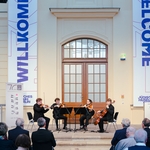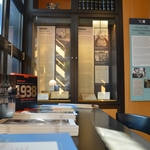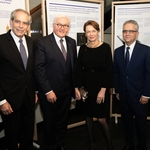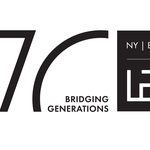Interview: Roger Cohen on German-Jewish History in the 21st Century

- Date
- Sun, Oct 1, 2017
Roger Cohen’s journalistic career has included stints covering Beirut in the 1980s, the Bosnian war in the 1990s, the return of the German government to Berlin in 2000, and the War in Afghanistan as the New York Times’ foreign editor after September 11, 2001. In the biweekly columns he has written for the Times since 2009, he often tackles the issues of the day with historical context and analogies. In advance of the 60th Leo Baeck Memorial Lecture, which Cohen will deliver this October, we asked him about the relevance of German-Jewish history to the Syrian refugee crisis and other pressing contemporary issues.
The world clearly failed to address the Jewish refugee crisis of the 1930s adequately. Have we learned anything?
We are at a moment in history where there are a lot of parallels, and it is not for nothing that it was Germany which in a moment of crisis, with a million refugees from Syria and other places milling around in Europe, stepped up to the plate and took people in because there was a strong moral argument for it. Germany knows what happens when the doors are closed.
In the 19th century, Germany’s Jewish minority assimilated with remarkable success, and later there was an influx of Jews from Eastern Europe. Do these experiences offer any models for the integration of minorities today?
Of course, differences in language, religion, and culture between migrants and their host societies are themes that never really go away, but I’m not sure to what extent Germany had institutions that fostered integration, especially with regard to the Ostjuden. Many German Jews were actually quite contemptuous of the ragged folk who arrived from the East and spoke a different language and were not called “Herr Doktor.” Unfortunately, human nature never really changes.
Zionism was one answer that the assimilated German Jews had that addressed the problems of Eastern European Jews, but which later became essential for their own survival. How do you see the legacy of German and Austrian Zionists today?
In short, they were right! As Herzl foresaw in the last decade of the 19th century, no matter how successful Jews became in the professions, in military service, in the academy, it would never lead to full integration or acceptance. This was Herzl’s fundamental insight at the time of the Dreyfus trial. Even as the Jews left the shtetls throughout the 19th century, they remained second-class citizens in the minds of many of their compatriots.
Does the thought of the early Zionists have lessons for the problems Israel faces today?
Herzl’s vision led to the state of Israel, which is in many ways a hugely, unimaginably successful society, but the resolution of the Jewish question created a Palestinian question. Somehow, the Jews, who were for millennia humiliated and excluded in the Diaspora, now find themselves in a semi-colonial situation in which they subject the Palestinian people to much of what we once suffered. So, it’s not an altogether happy outcome. Zionism in its origins was a secular movement. Religious Zionists who are active in the settlements like to equate themselves with the pioneers, but Israel was conceived as a state of laws, whereas lawlessness prevails in the settlements. The settlers vote as citizens of Israel while the millions around them cannot vote. It’s a very corrosive situation. Things can change even when problems seem insurmountable, however. Just look at German history. If in 1945 I had suggested that the border between Poland and Germany would one day become so porous as to be nearly invisible, you would have laughed.
Restitution and reparations for Jewish victims after World War II was a key factor in the rehabilitation of Germany that made European integration possible. How do you see the prospects for this kind of restorative justice today?
Restitution and reparations are one thing when there is a unified government. This is very hard to imagine happening in conflicts like the one in Syria, where there is such fragmentation of society. To whom would one even address the claim? Still one should never give up. Germany’s reckoning with history didn’t happen all at once. It took a struggle over generations for post-war Germans to acknowledge the crimes of the Third Reich. The critical thing is not to forget. Amnesia is always fatal at some point, as the Yugoslav experience shows very vividly. The same will be true in Syria. The question is how to deal with memory in a way that doesn’t foster desire for vengeance but rather acknowledges the past and doesn’t try to hide it.




